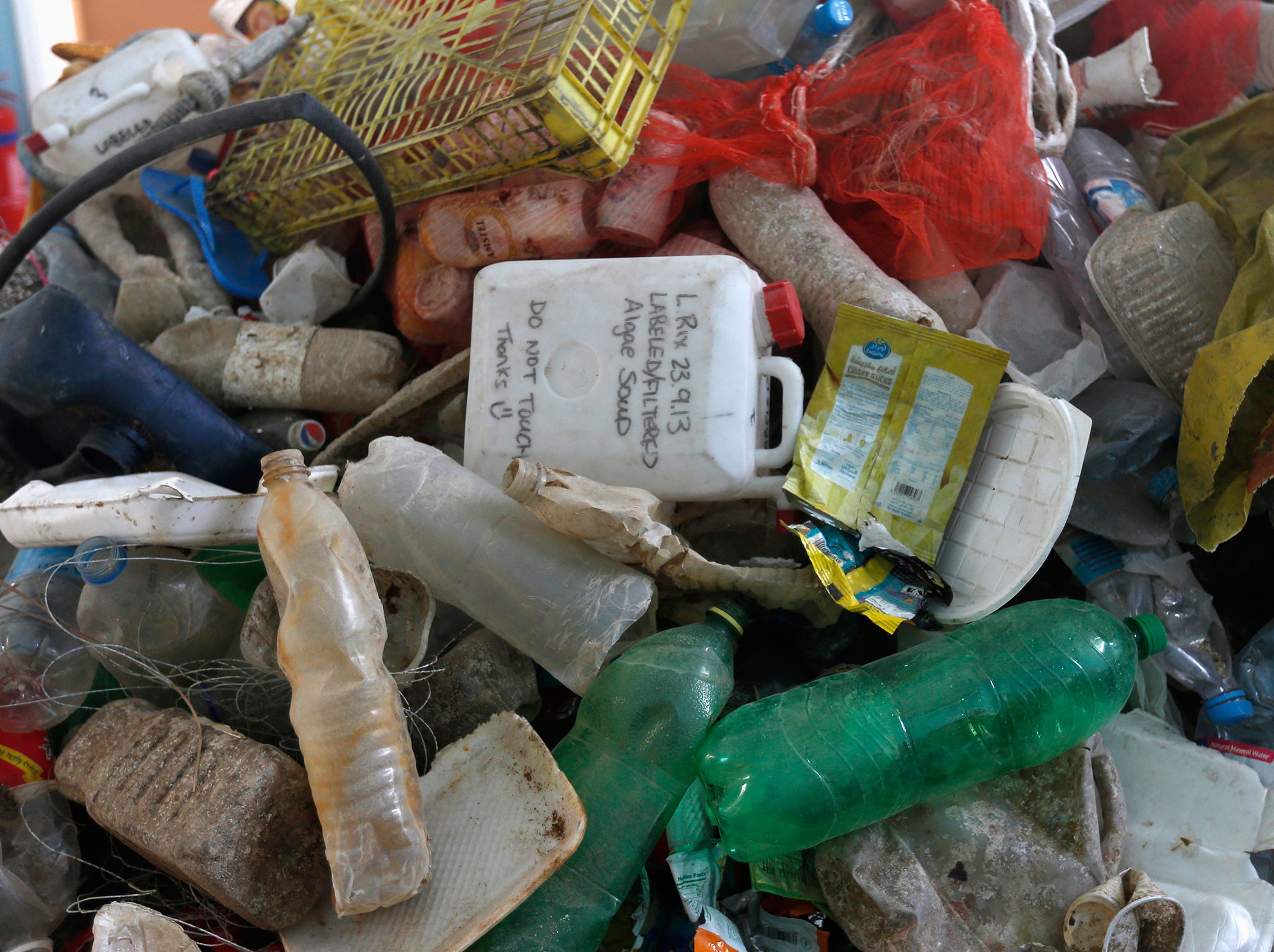There will soon be more plastic than fish in the sea, Ellen MacArthur study warns
We are making 20 times more plastic than we did 50 years ago — and much of it is being thrown into the sea

Your support helps us to tell the story
From reproductive rights to climate change to Big Tech, The Independent is on the ground when the story is developing. Whether it's investigating the financials of Elon Musk's pro-Trump PAC or producing our latest documentary, 'The A Word', which shines a light on the American women fighting for reproductive rights, we know how important it is to parse out the facts from the messaging.
At such a critical moment in US history, we need reporters on the ground. Your donation allows us to keep sending journalists to speak to both sides of the story.
The Independent is trusted by Americans across the entire political spectrum. And unlike many other quality news outlets, we choose not to lock Americans out of our reporting and analysis with paywalls. We believe quality journalism should be available to everyone, paid for by those who can afford it.
Your support makes all the difference.There will be more waste plastic than fish in the sea by 2050, unless the industry helps to clean the seas, a new report warns.
The production of plastic is growing hugely and could account for 20 per cent of all oil production in the next few decades, a report from the Ellen Macarthur Foundation has warned.
The production of plastic is up by 20 times in the last 50 years, the report warns. And only a tiny proportion of that huge amount of plastic is actually recycled — with 40 per cent of it thrown in landfill and most of the rest thrown into fragile ecosystems like the sea.
The rest of it is burned. That saves energy in creating heat, but it also means that new plastics have to be used — using up more oil to make the plastic bags and containers that are required.
The world needs to rapidly transform to stop plastics from becoming waste, the report from the record-breaking sailor’s foundation warns.
“This report demonstrates the importance of triggering a revolution in the plastics industrial ecosystem and is a first step to showing how to transform the way plastics move through our economy,” said Dominic Waughray of the World Economic Forum, where the report was launched. “To move from insight to large scale action, it is clear that no one actor can work on this alone; the public, private sector and civil society all need to mobilize in order to capture the opportunity of the new circular plastics economy.”
The report recognised that the use of plastic was integral to much modern industry. But it is also in inefficient material, almost always being used just once and generating huge amounts of waste, both of plastic and the fossil fuels required to make it.
Join our commenting forum
Join thought-provoking conversations, follow other Independent readers and see their replies
0Comments